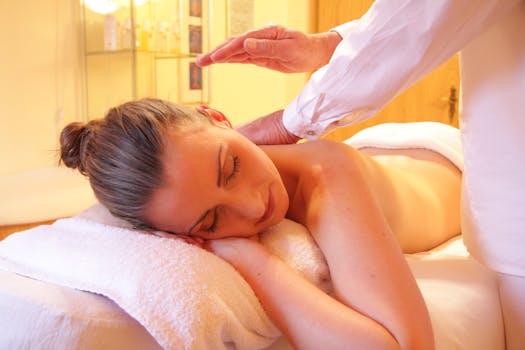 In today’s rapidly evolving world, traditional methods of seeking help and healing are being complemented by innovative approaches that cater to diverse needs and preferences. From technological advancements to alternative therapies, individuals are exploring new avenues to address their physical, mental, and emotional well-being. These innovative approaches offer unique benefits and opportunities for growth, empowering individuals to embark on their healing journey with confidence and resilience.
In today’s rapidly evolving world, traditional methods of seeking help and healing are being complemented by innovative approaches that cater to diverse needs and preferences. From technological advancements to alternative therapies, individuals are exploring new avenues to address their physical, mental, and emotional well-being. These innovative approaches offer unique benefits and opportunities for growth, empowering individuals to embark on their healing journey with confidence and resilience.
One of the most notable innovations in seeking help and healing is the integration of technology into healthcare services. Telemedicine, for instance, allows individuals to access medical consultations, therapy sessions, and support groups remotely, breaking down barriers to care such as geographical distance and mobility issues. Through video conferencing, messaging platforms, and mobile applications, individuals can connect with healthcare professionals and support networks from the comfort of their own homes, fostering convenience, accessibility, and flexibility in their healing process.
Additionally, technological advancements have led to the development of digital therapeutics, which encompass evidence-based interventions delivered through digital platforms to prevent, manage, or treat various health conditions. These digital solutions may include mobile apps, virtual reality programs, and wearable devices that offer personalized guidance, tracking, and support tailored to individual needs. By harnessing the power of data analytics and artificial intelligence, digital therapeutics provide users with real-time feedback, insights, and interventions to facilitate behavior change and improve health outcomes.
Innovative approaches to seeking help and healing also extend to the realm of holistic and alternative therapies. Practices such as acupuncture, meditation, yoga, and mindfulness have gained popularity for their ability to promote relaxation, stress reduction, and overall well-being. These ancient healing modalities offer individuals the opportunity to connect with their inner selves, cultivate self-awareness, and explore new avenues for self-expression and personal growth. Moreover, integrative approaches that combine conventional medicine with complementary therapies provide a holistic framework for addressing the multifaceted nature of health and healing.
Furthermore, community-based initiatives and peer support networks play a vital role in facilitating help and healing, especially for individuals facing stigmatized or marginalized health conditions. Support groups, online forums, and advocacy organizations offer platforms for individuals to share their experiences, find solidarity, and access resources and information tailored to their needs. By fostering a sense of belonging, empowerment, and collective resilience, these community-driven approaches empower individuals to navigate their health journey with confidence and optimism.
Finally, innovative approaches to seeking help and healing emphasize the importance of personalized and patient-centered care. By recognizing the unique needs, preferences, and values of each individual, healthcare providers can tailor interventions and treatment plans to optimize outcomes and enhance patient satisfaction. This person-centered approach prioritizes collaboration, communication, and shared decision-making between patients and providers, empowering individuals to take an active role in their health and well-being.
In conclusion, innovative approaches to seeking help and healing offer individuals a diverse array of options to address their health needs and goals. From technological advancements to holistic therapies and community-based initiatives, these innovative approaches provide individuals with the tools, resources, and support they need to embark on their healing journey with confidence and resilience. By embracing innovation and embracing diversity in healthcare, we can create a more inclusive and empowering environment for all individuals to thrive.









